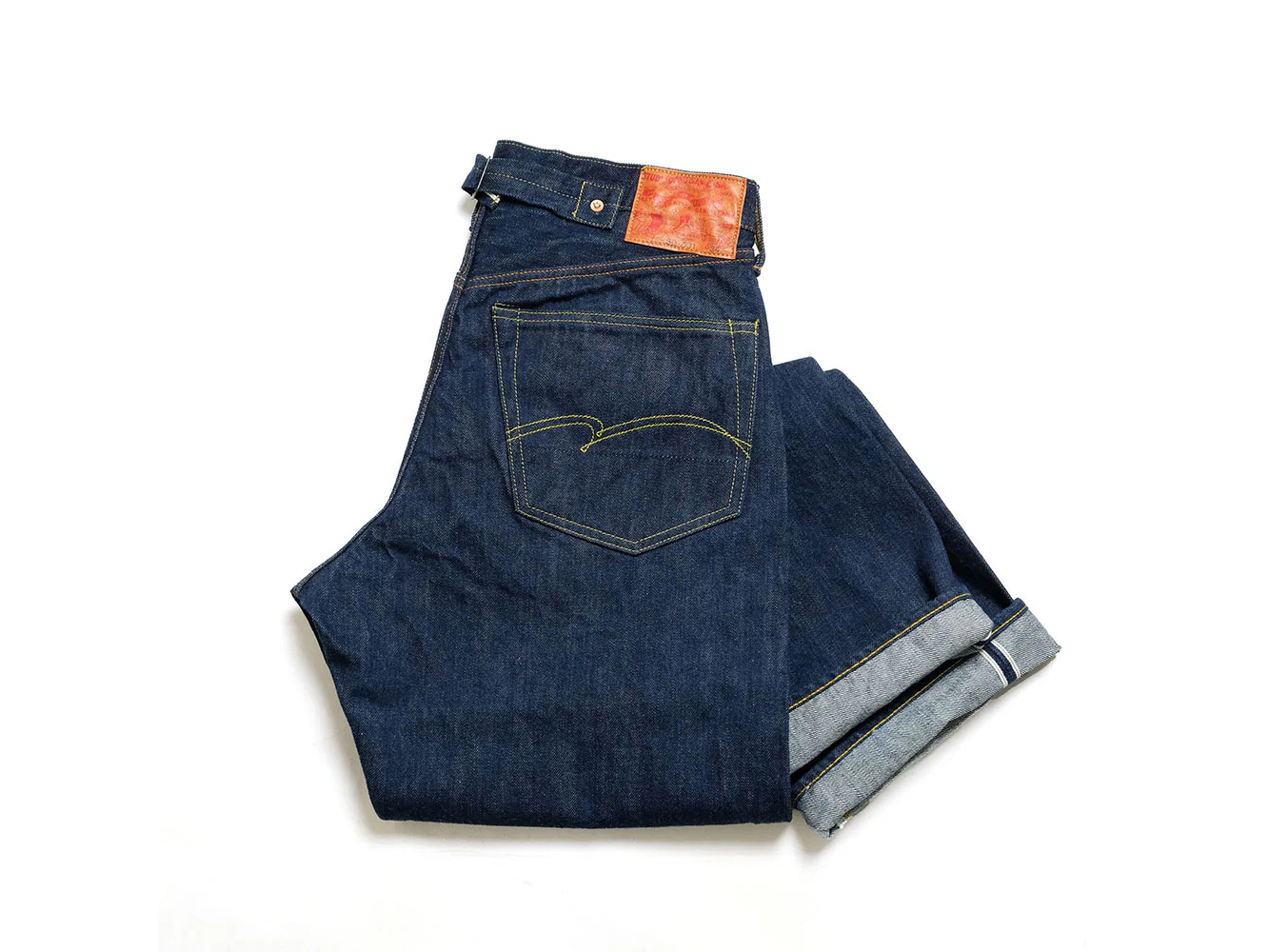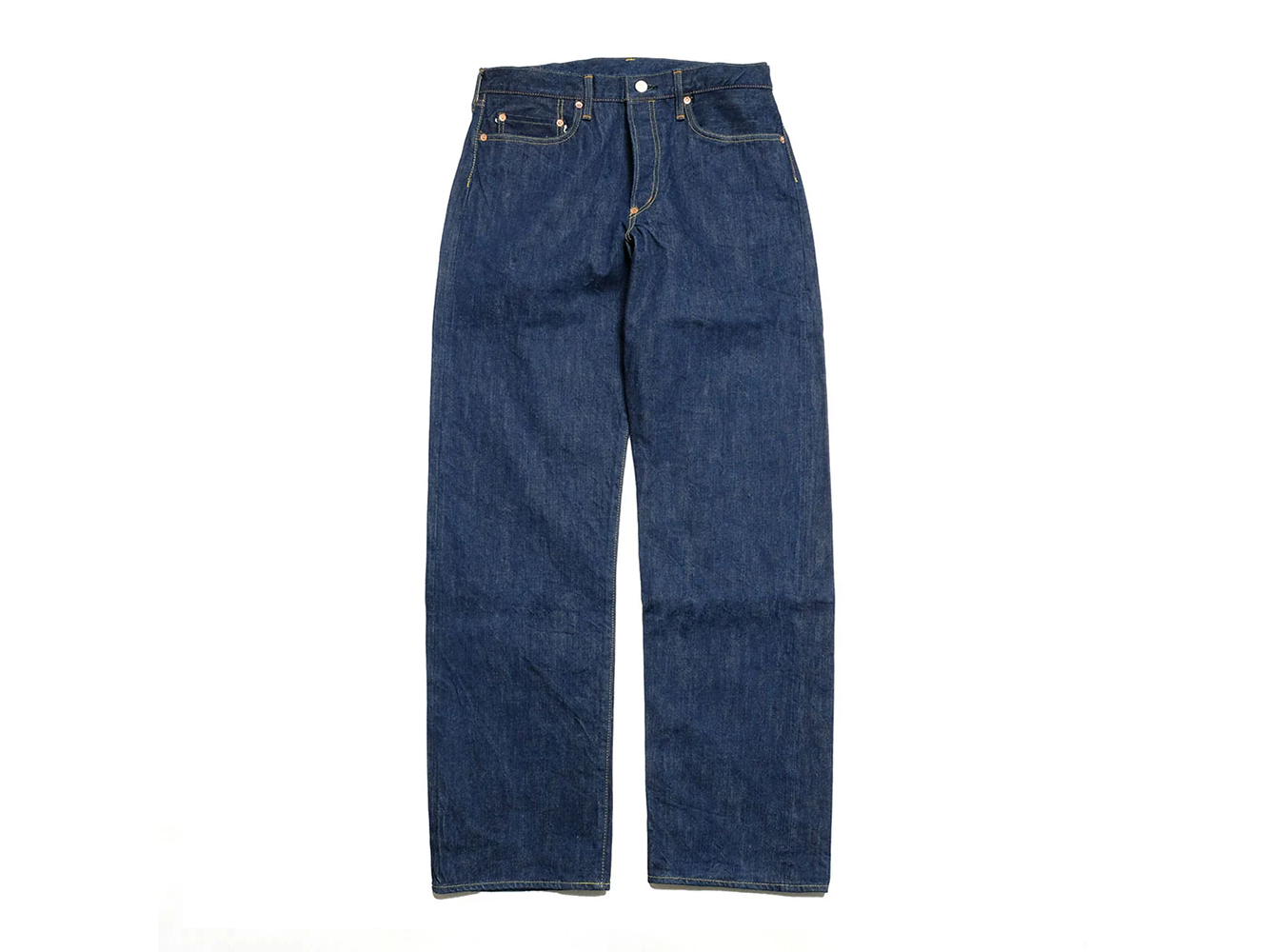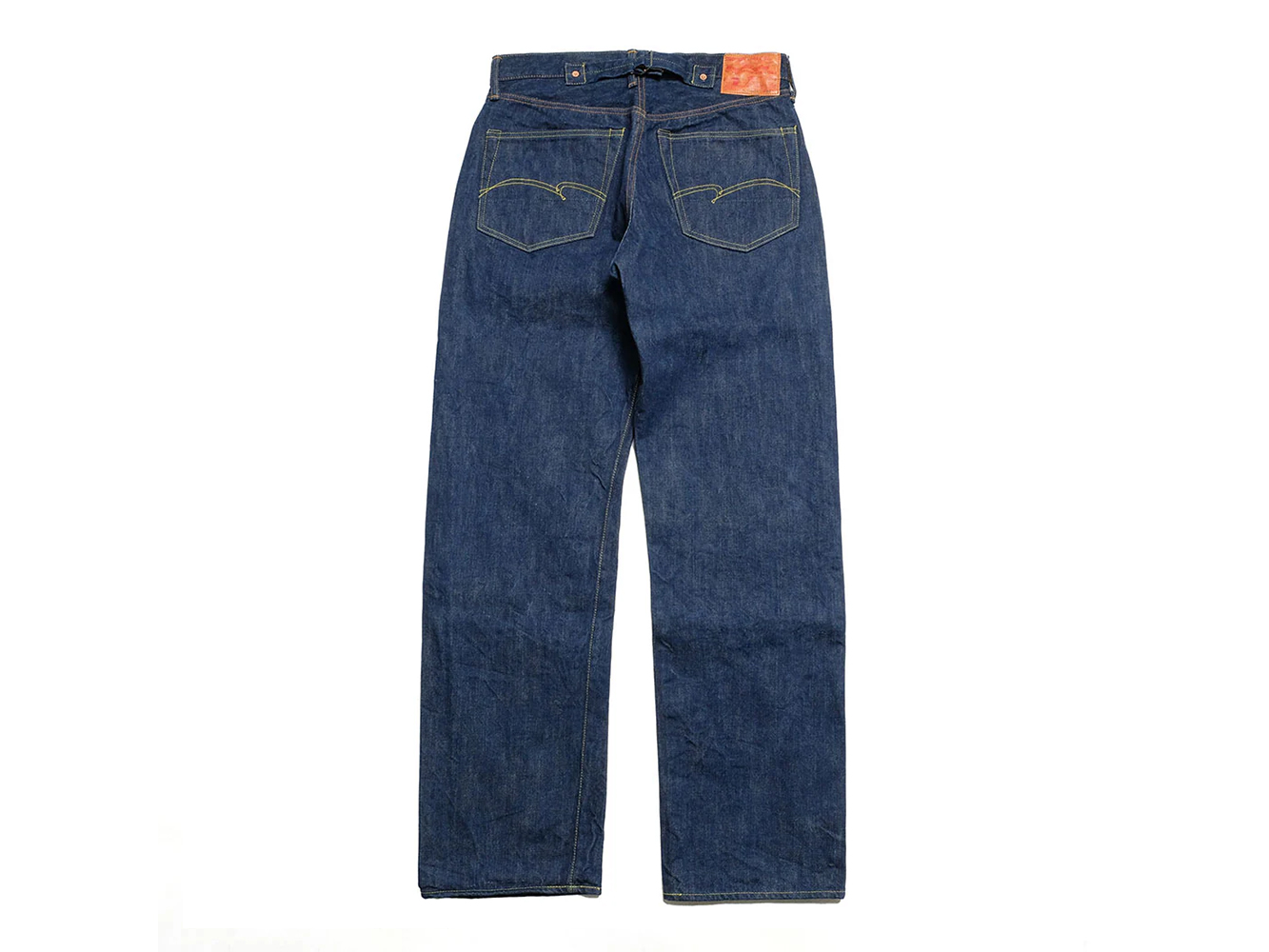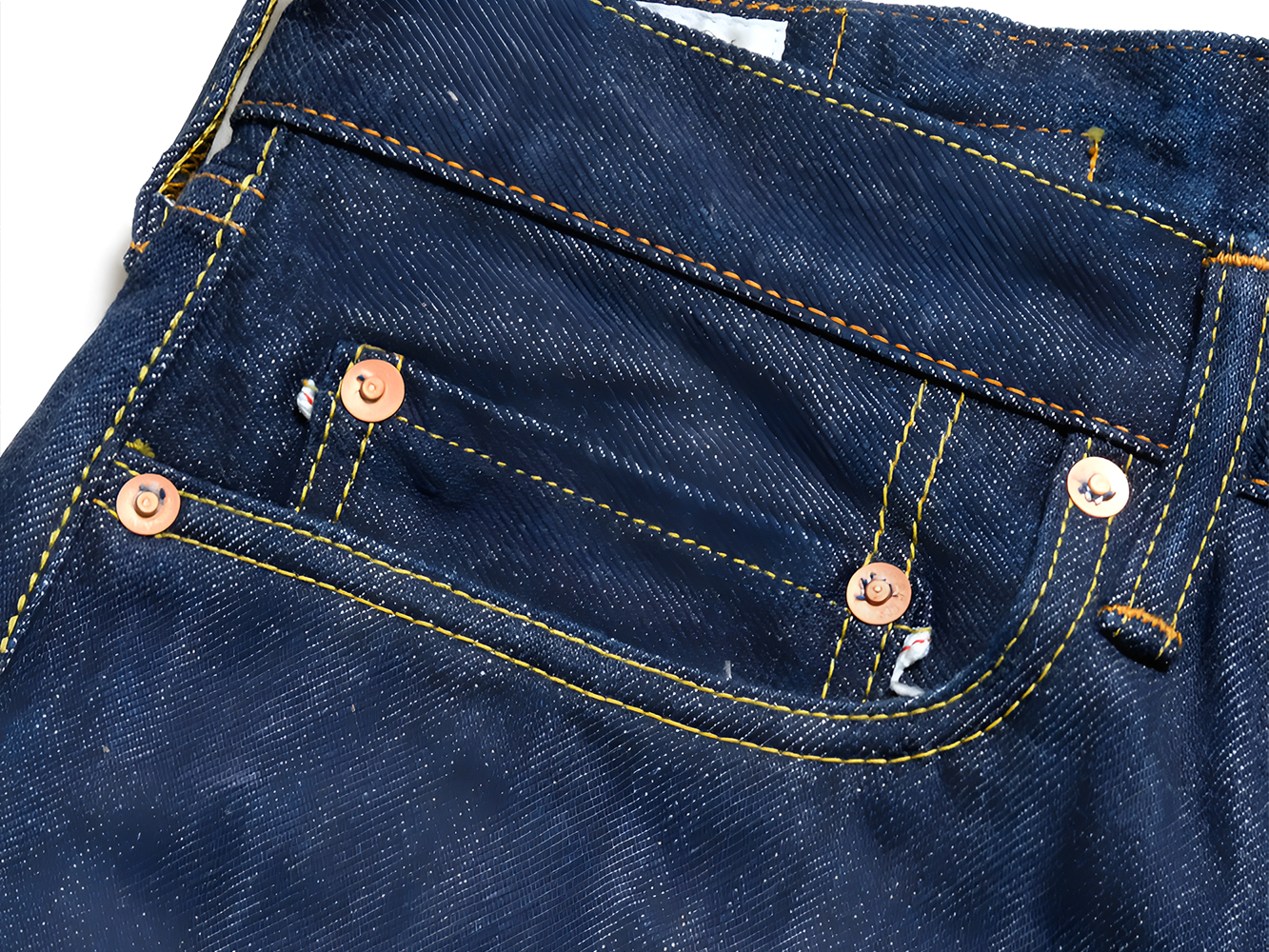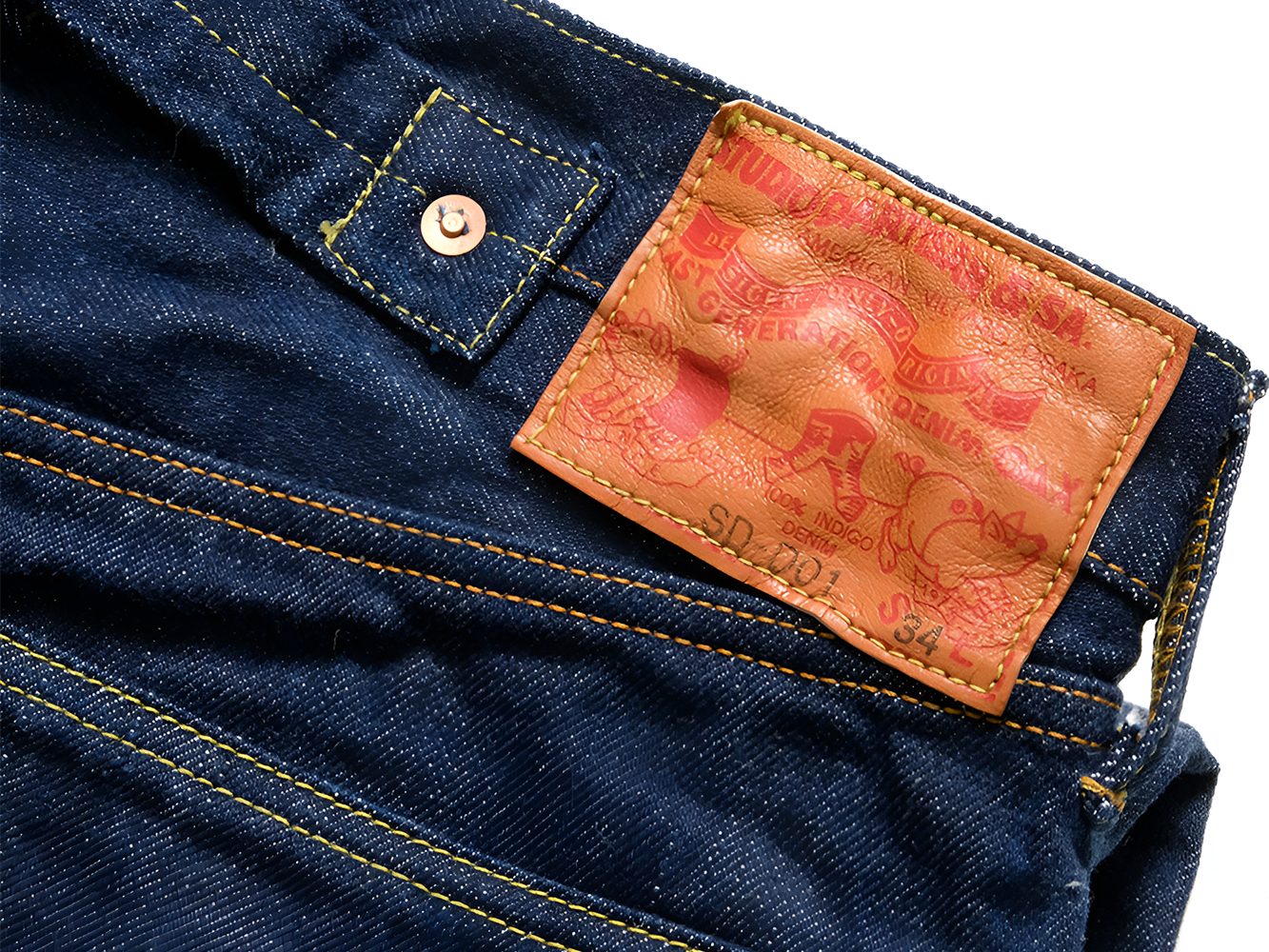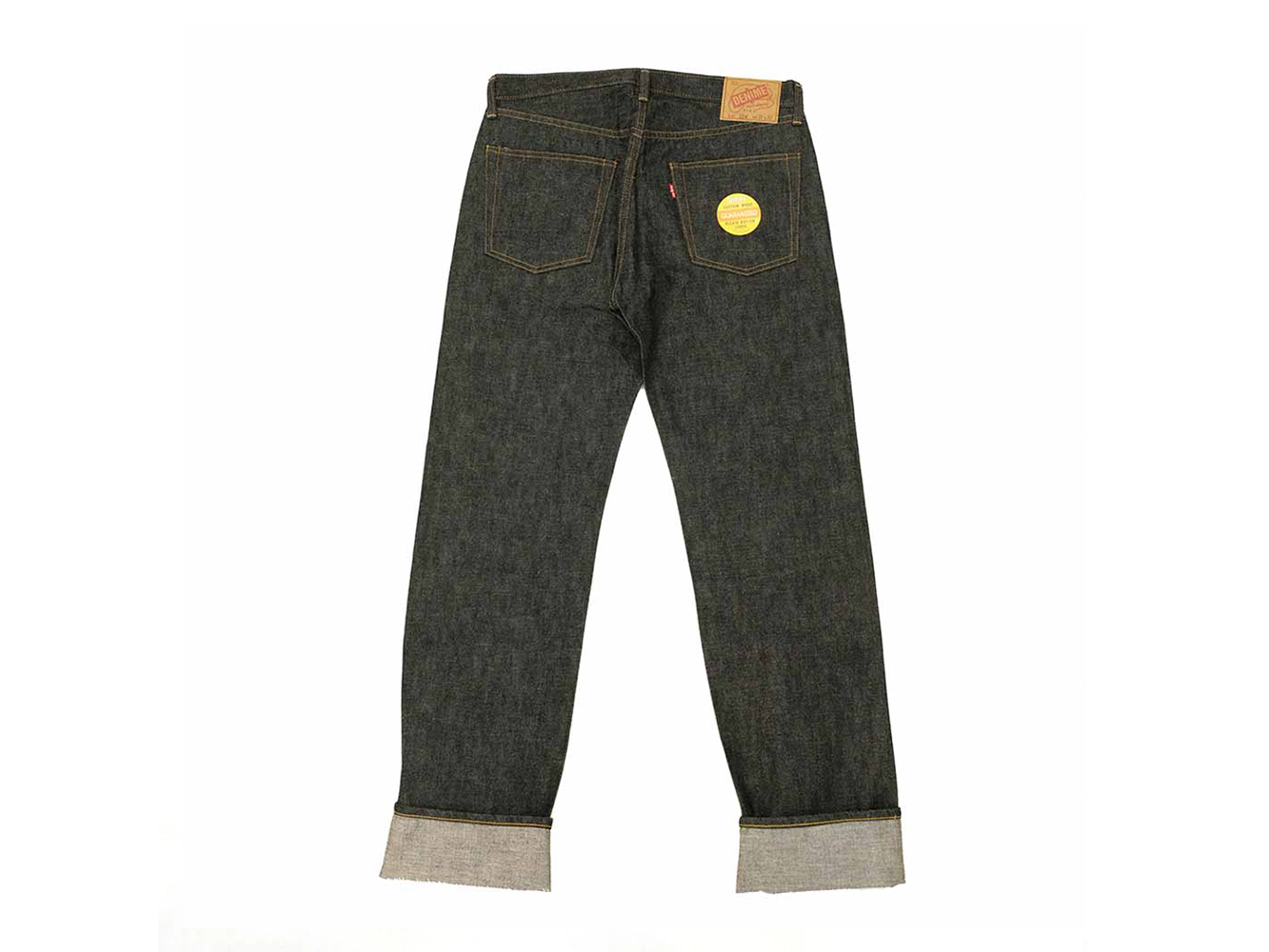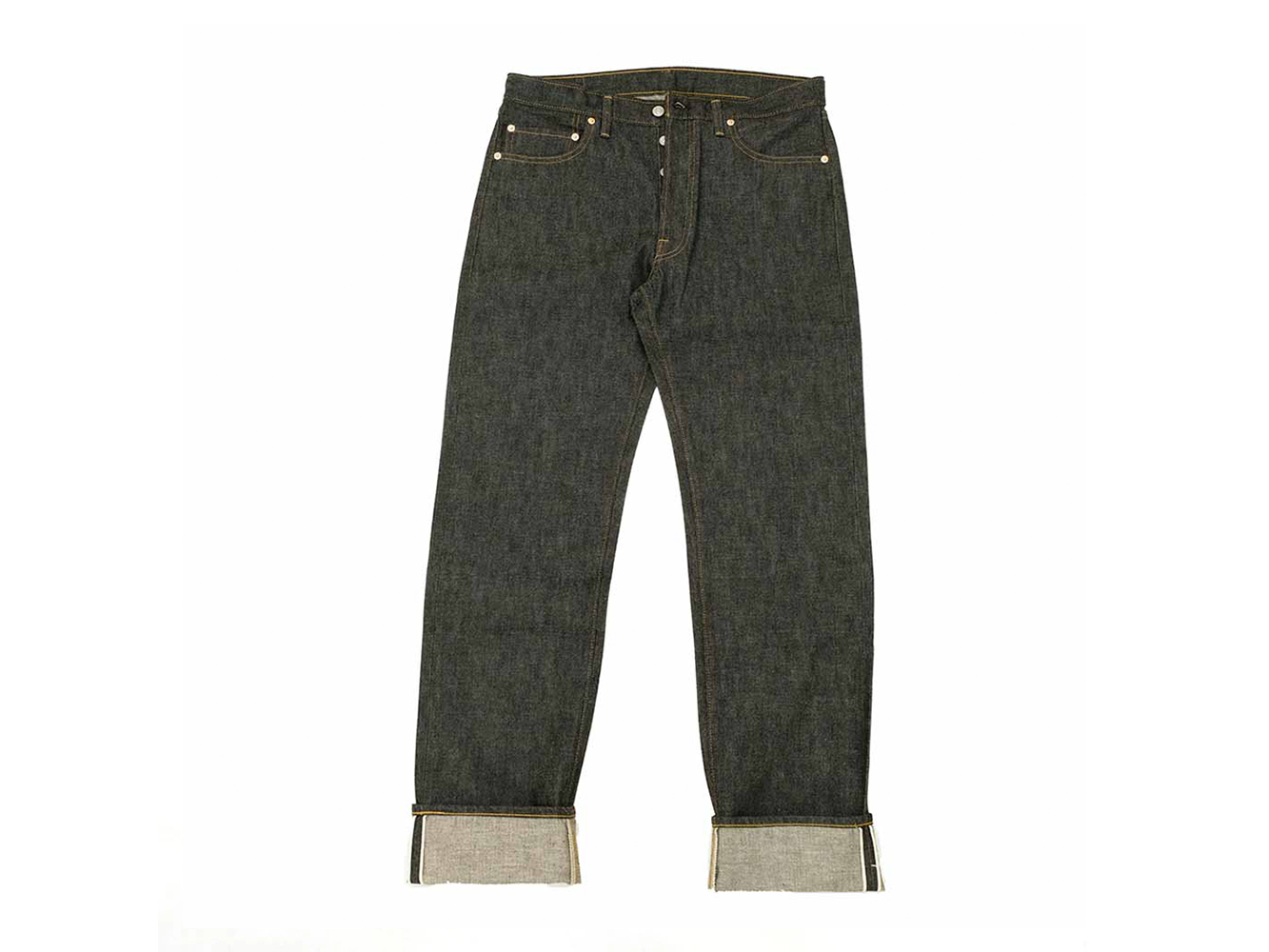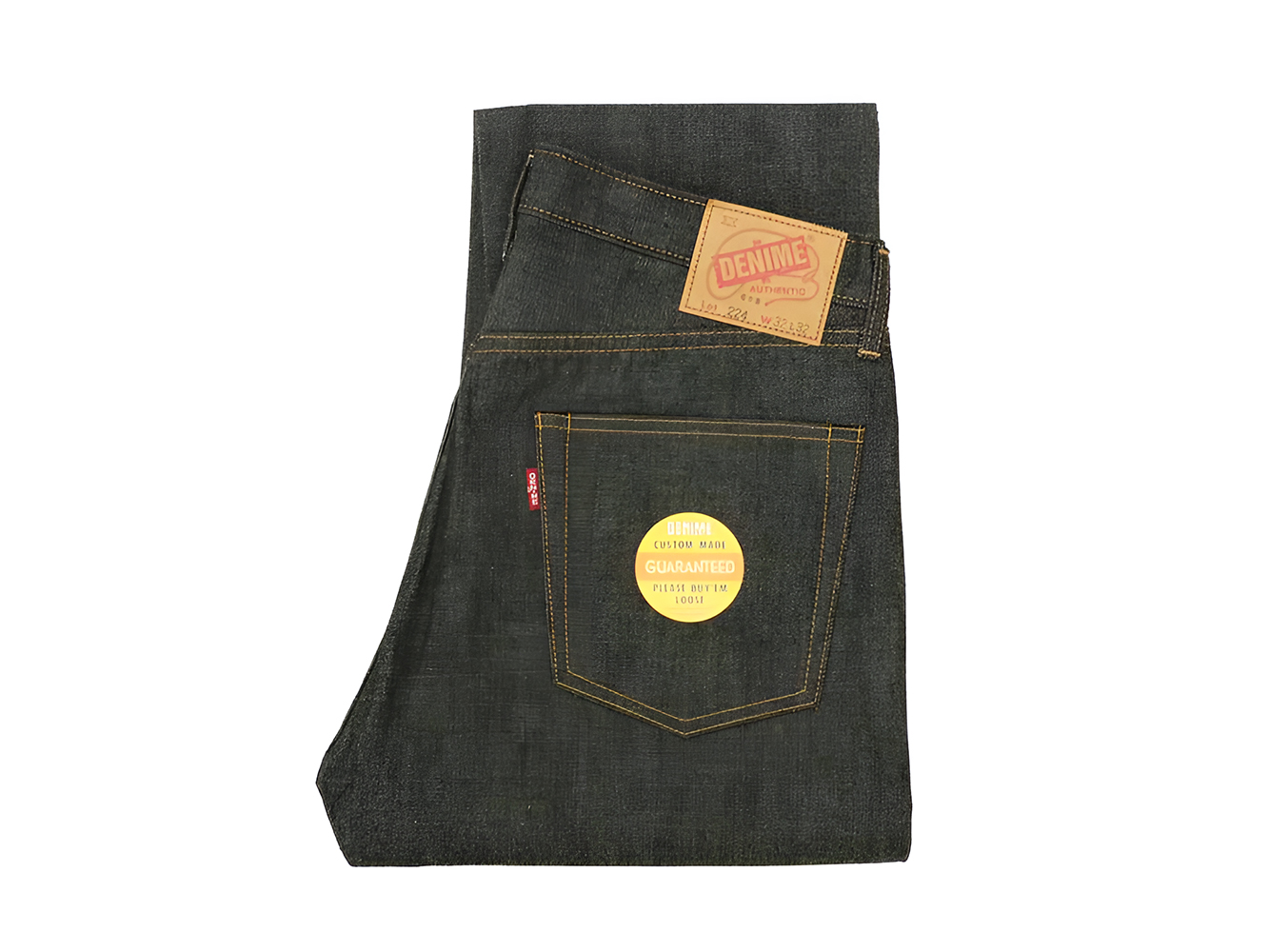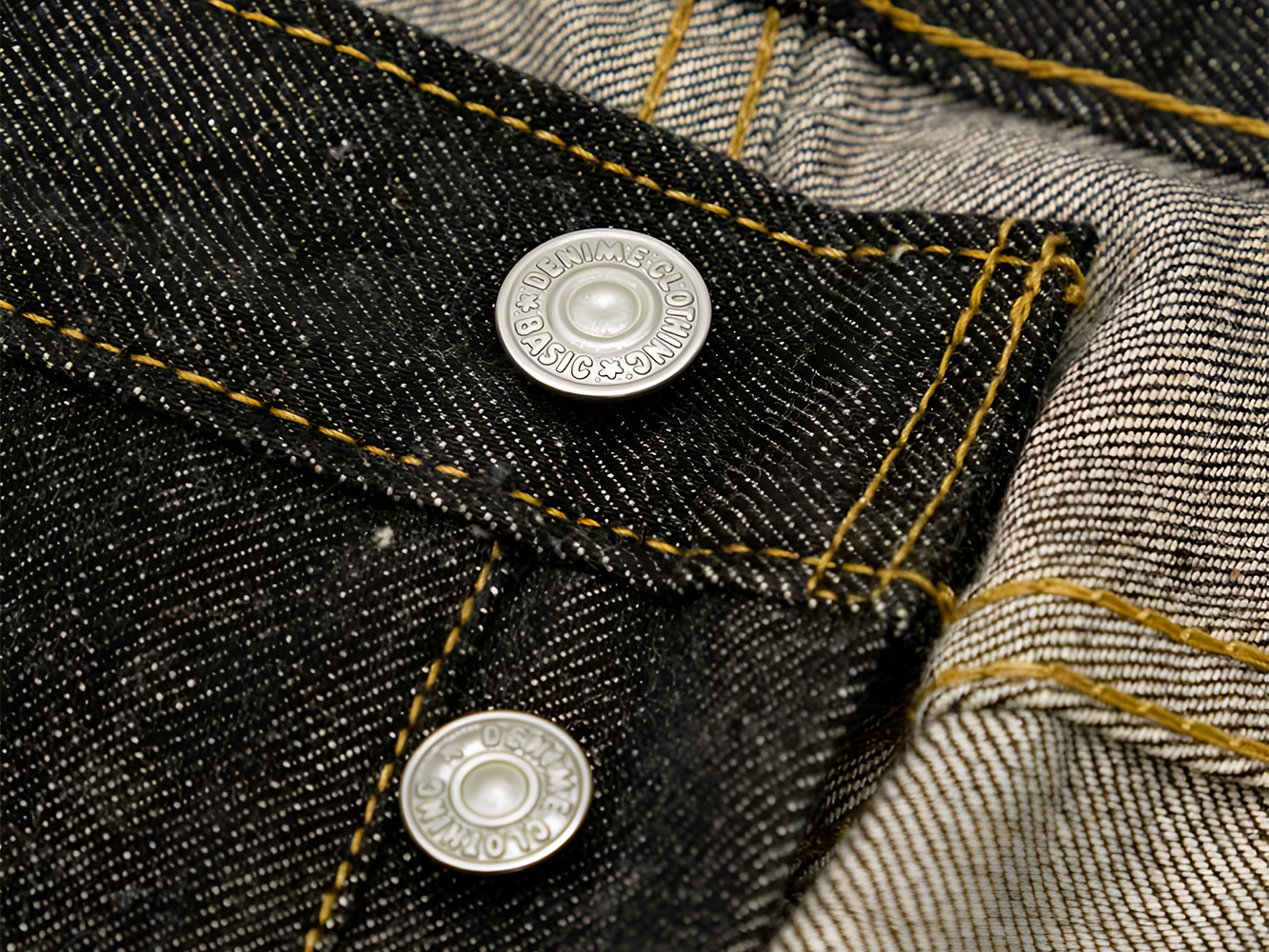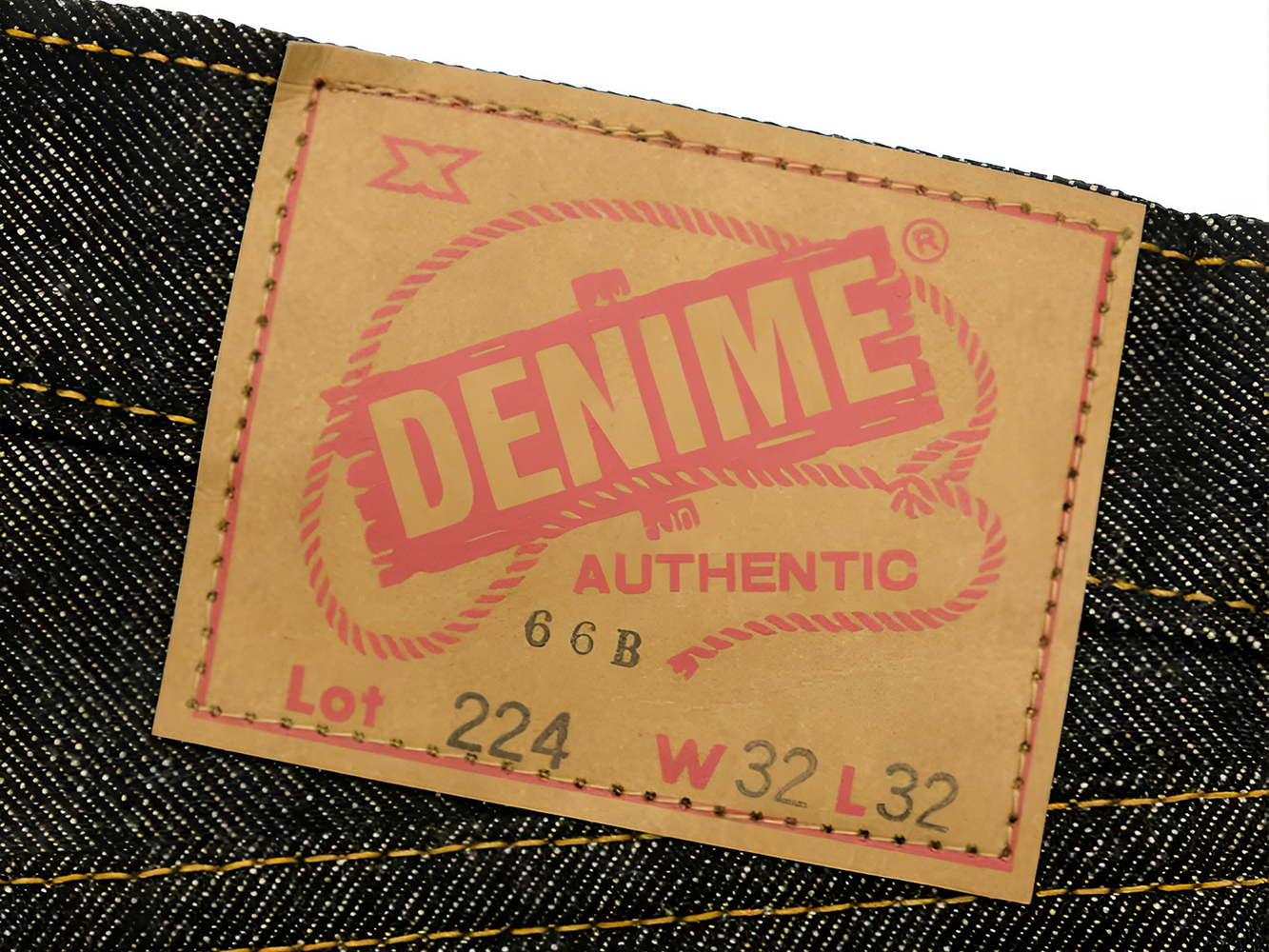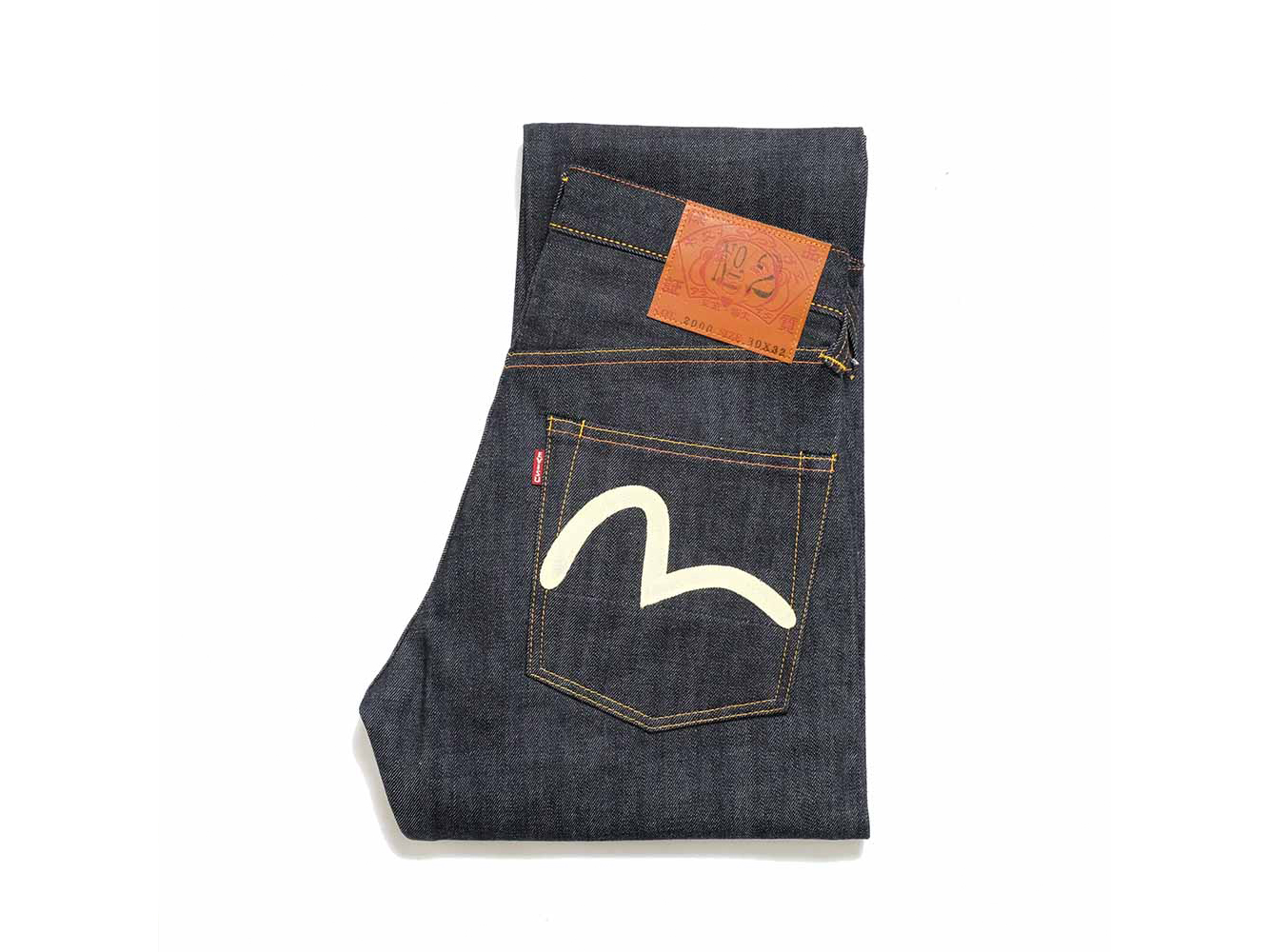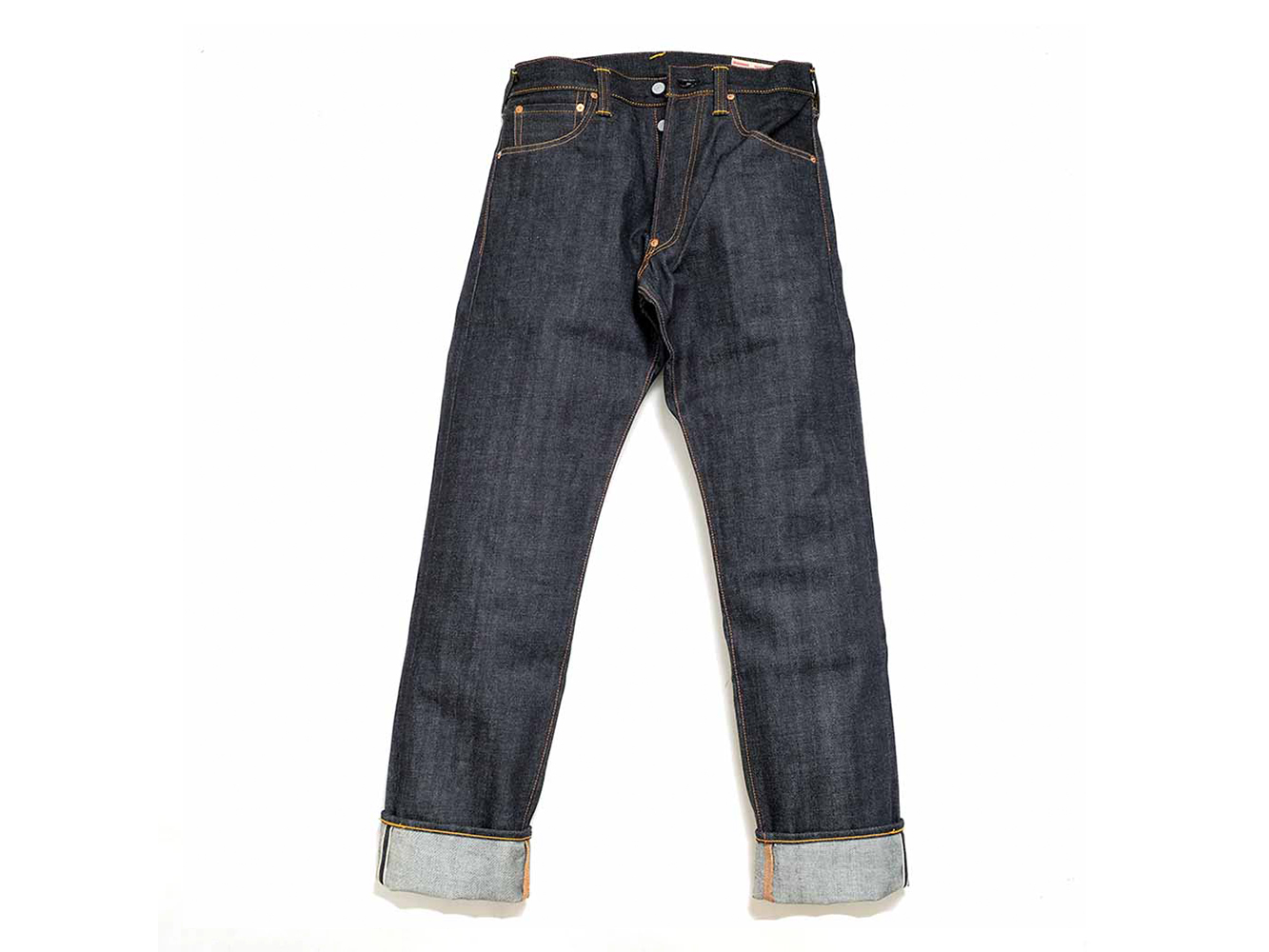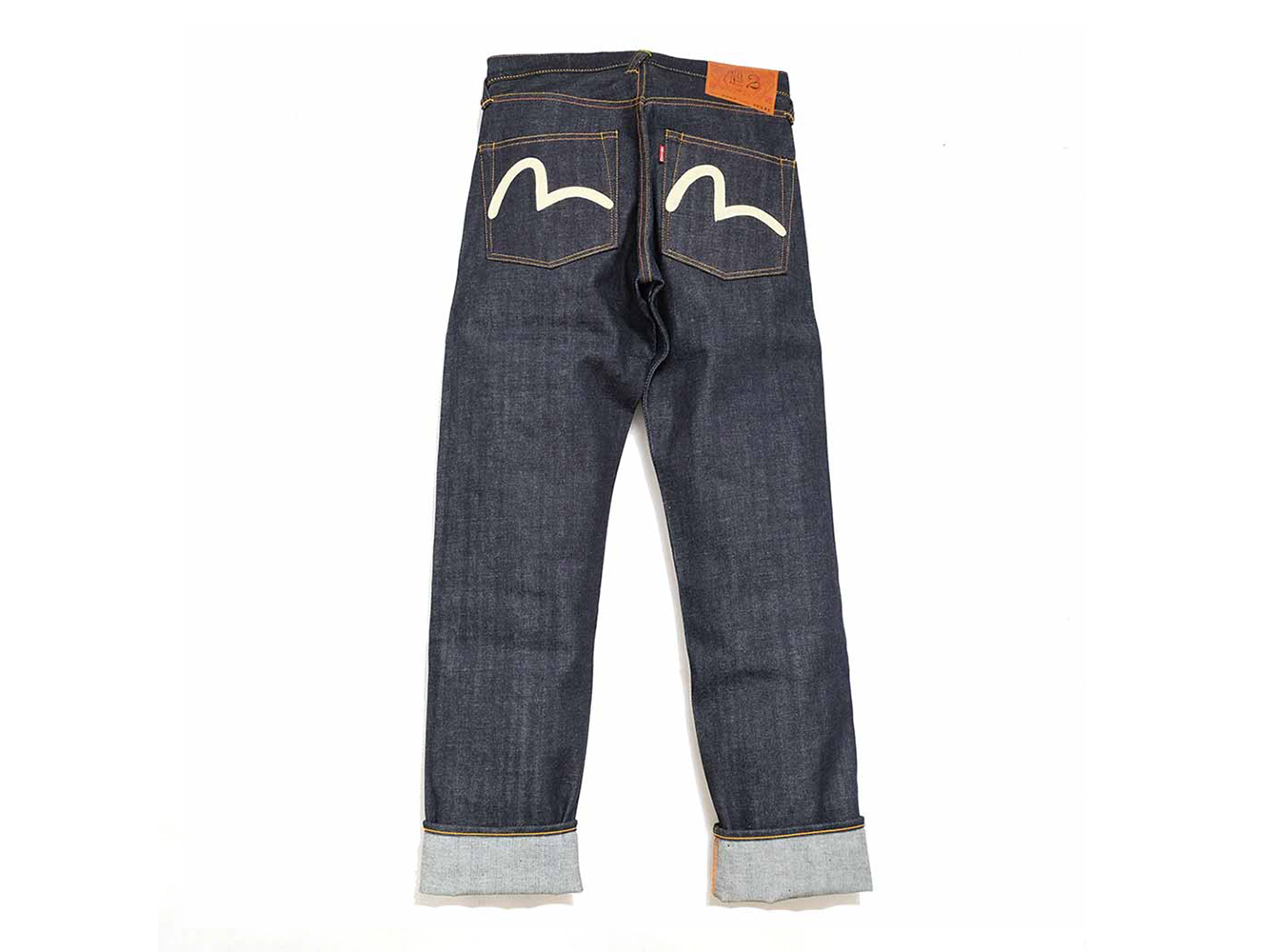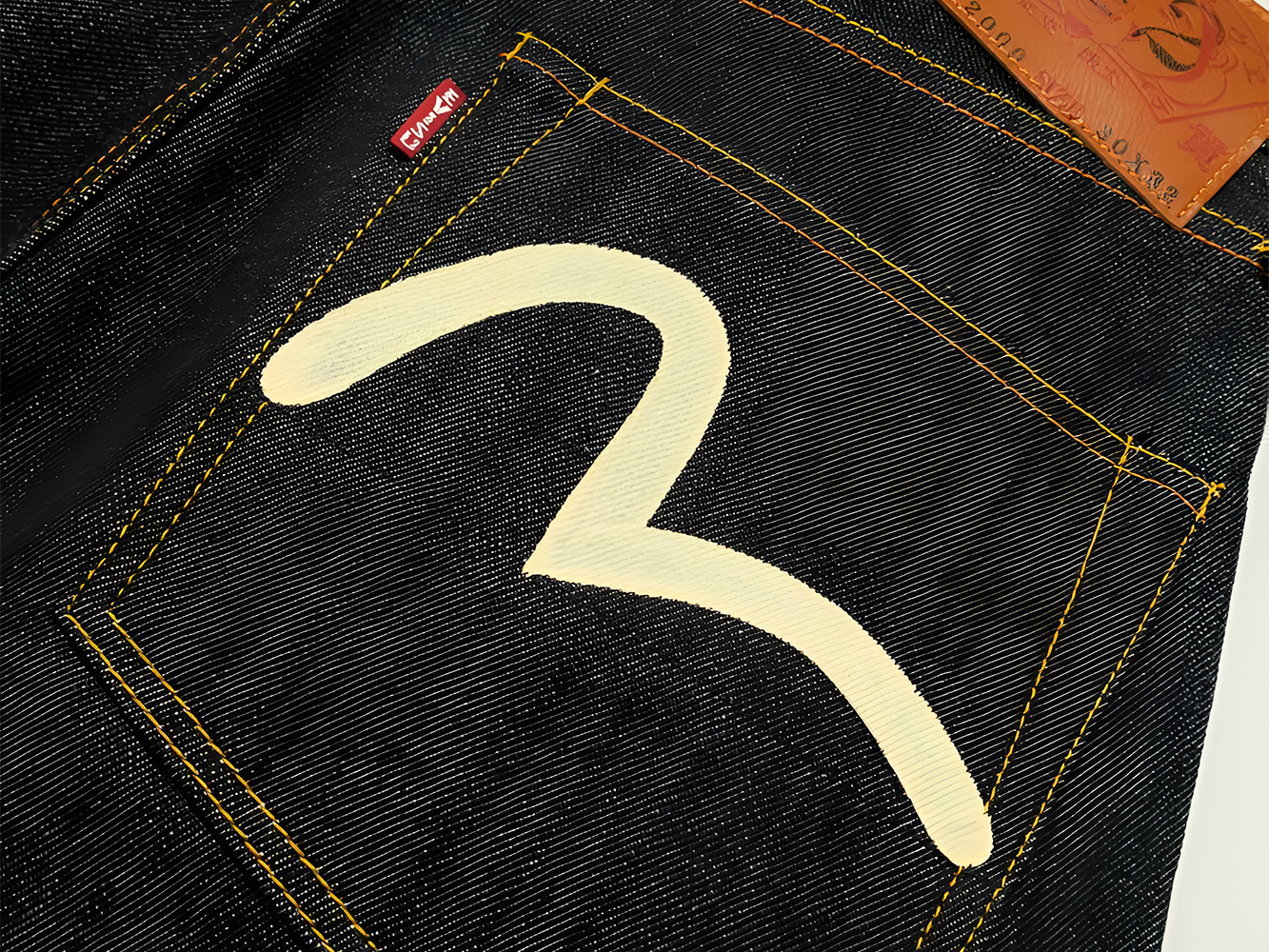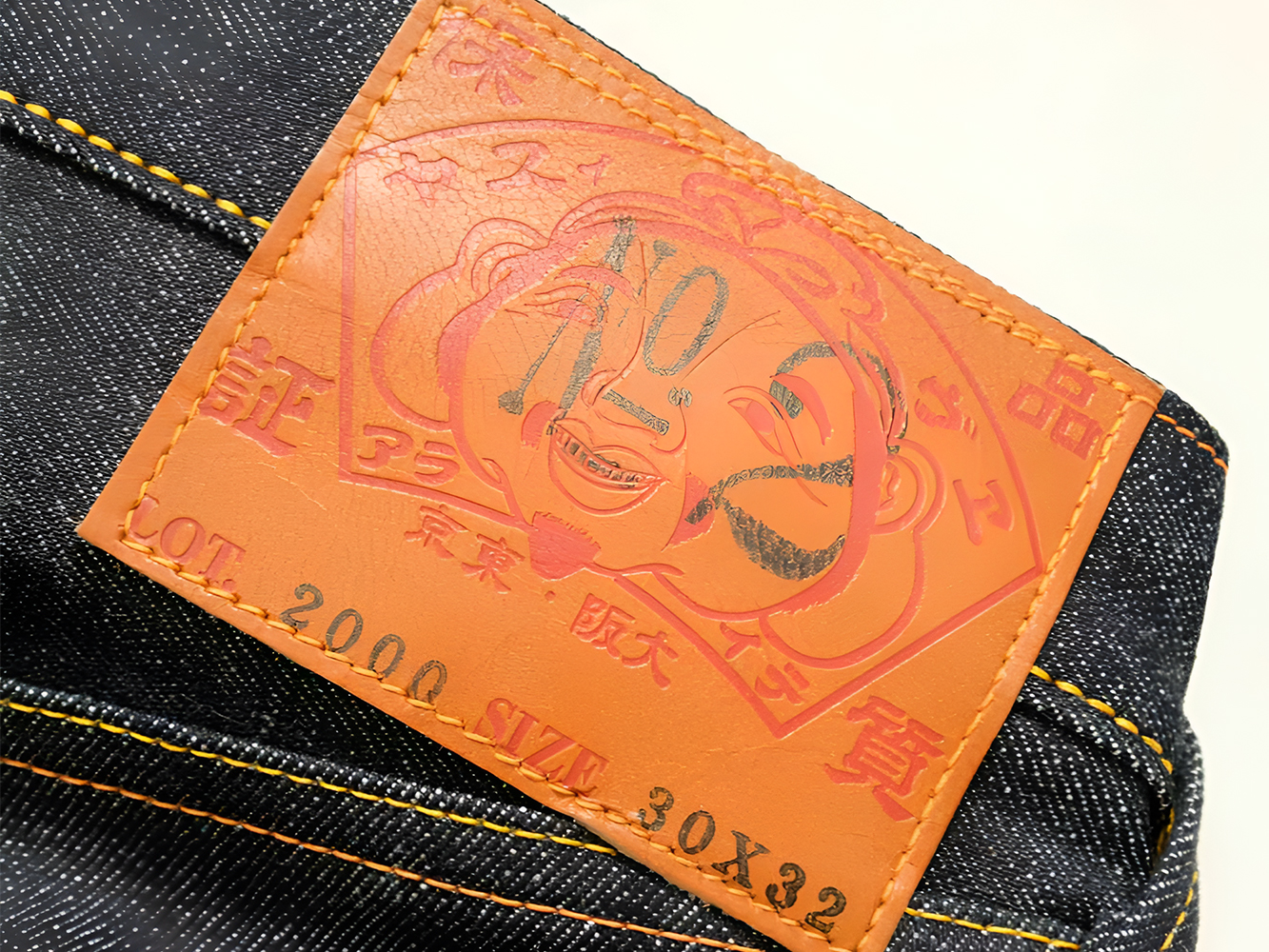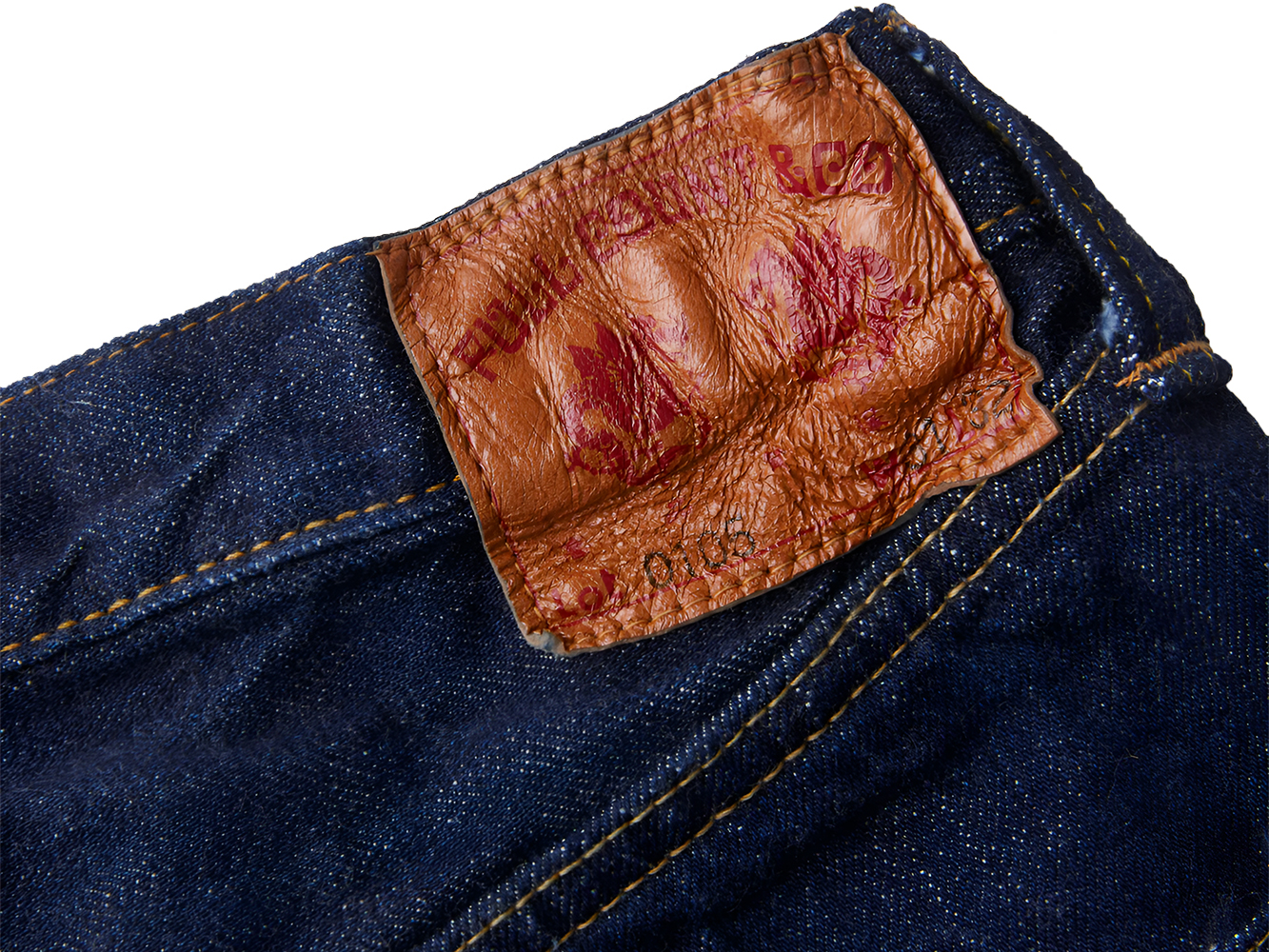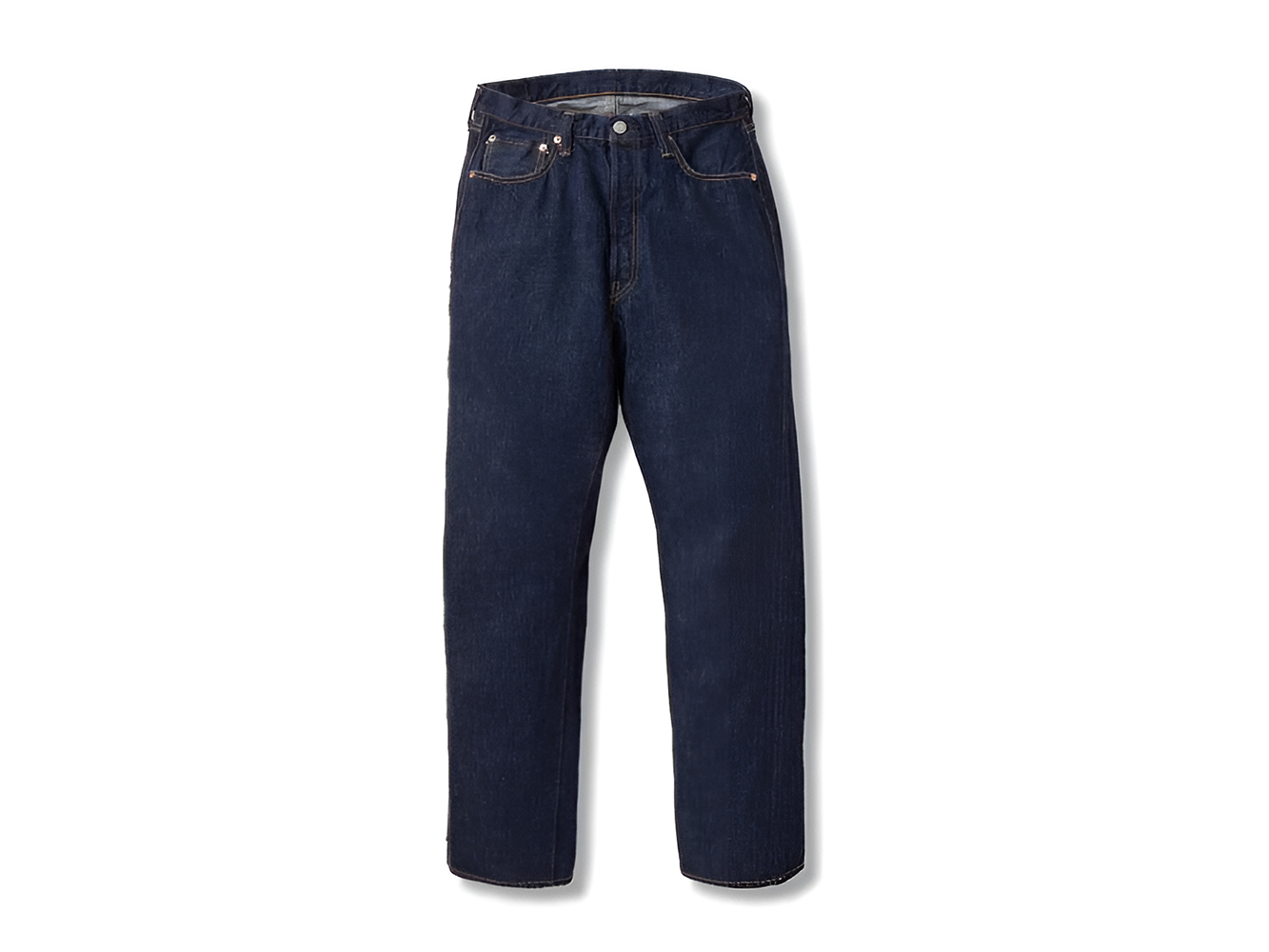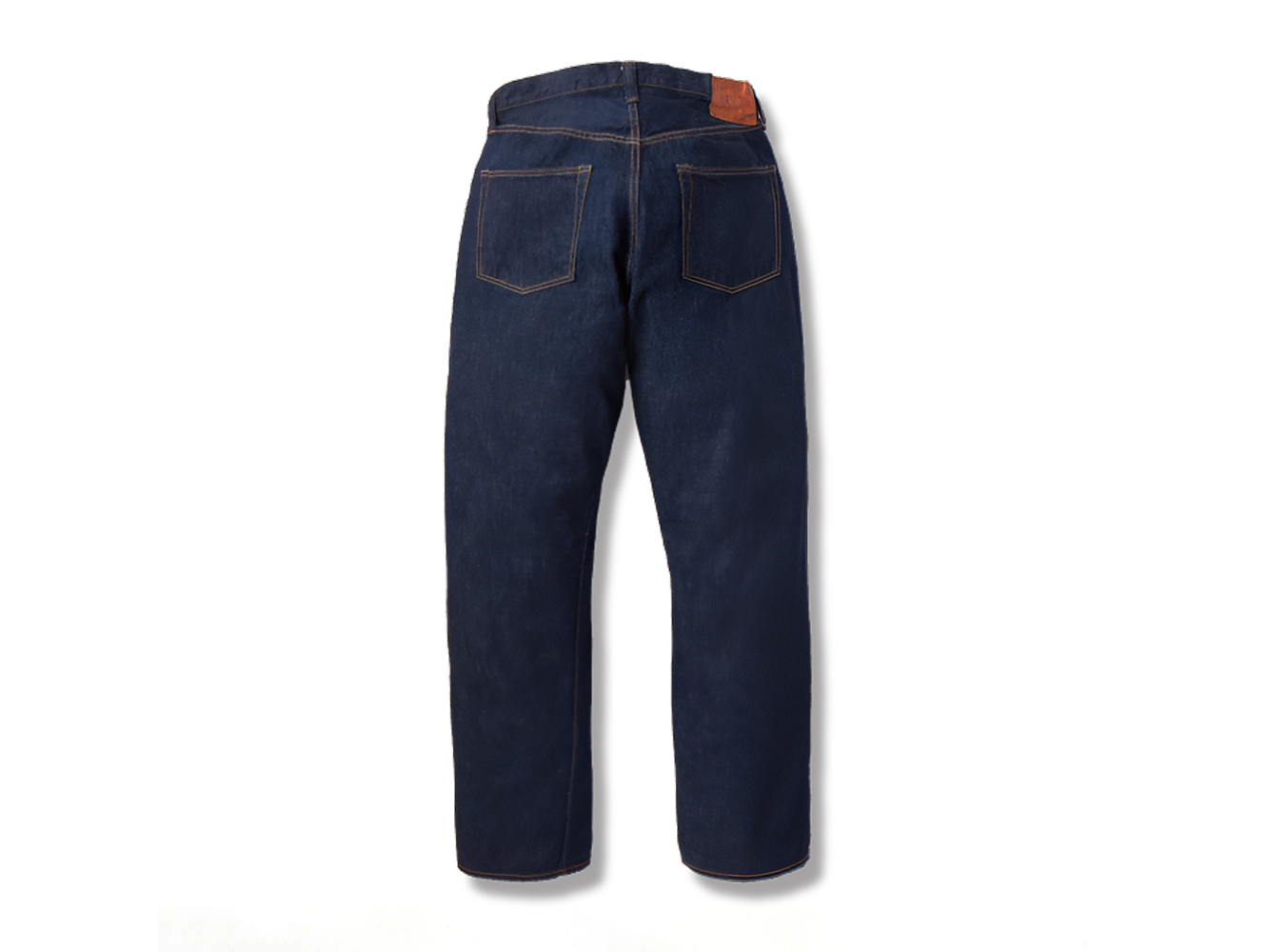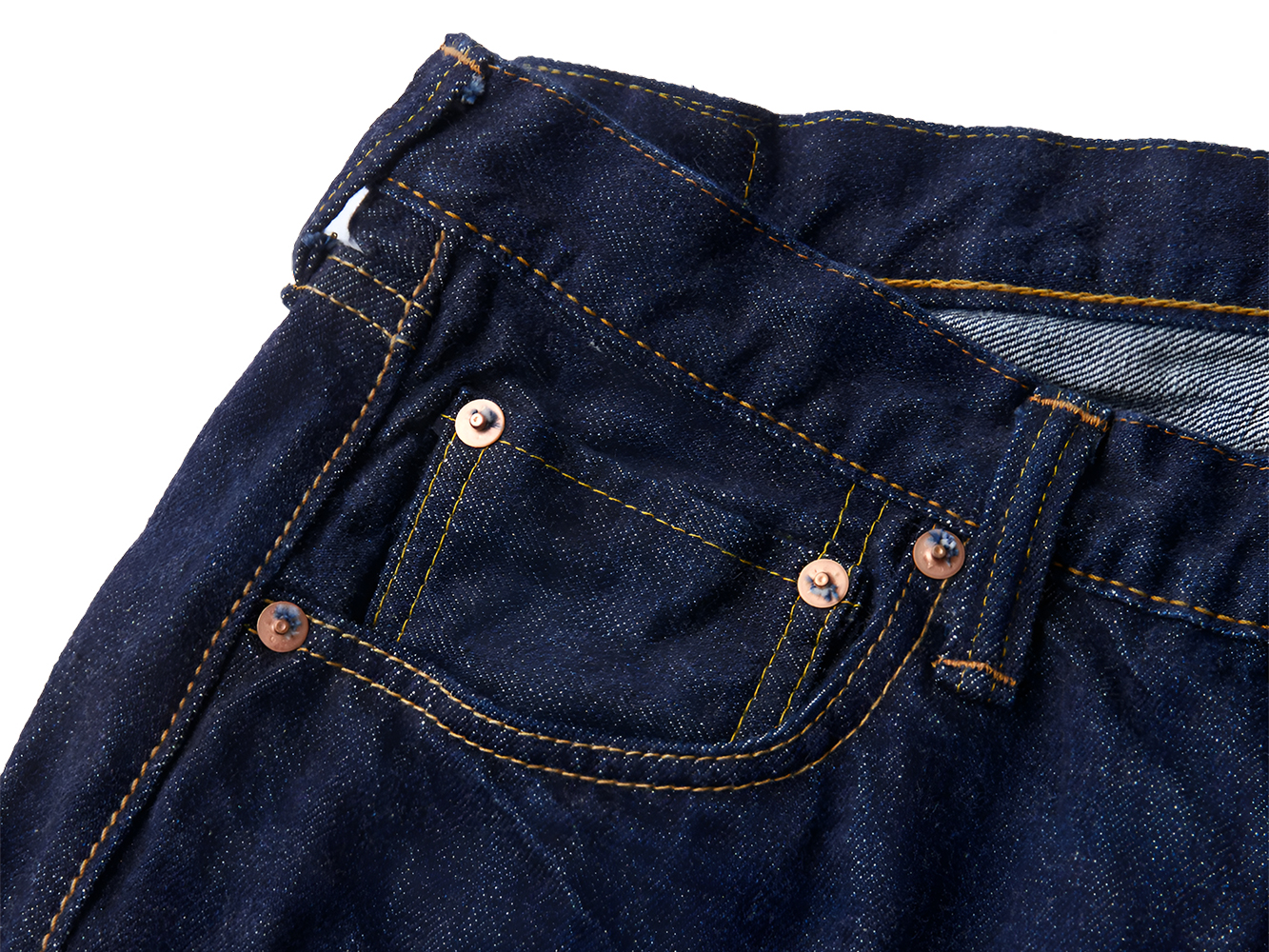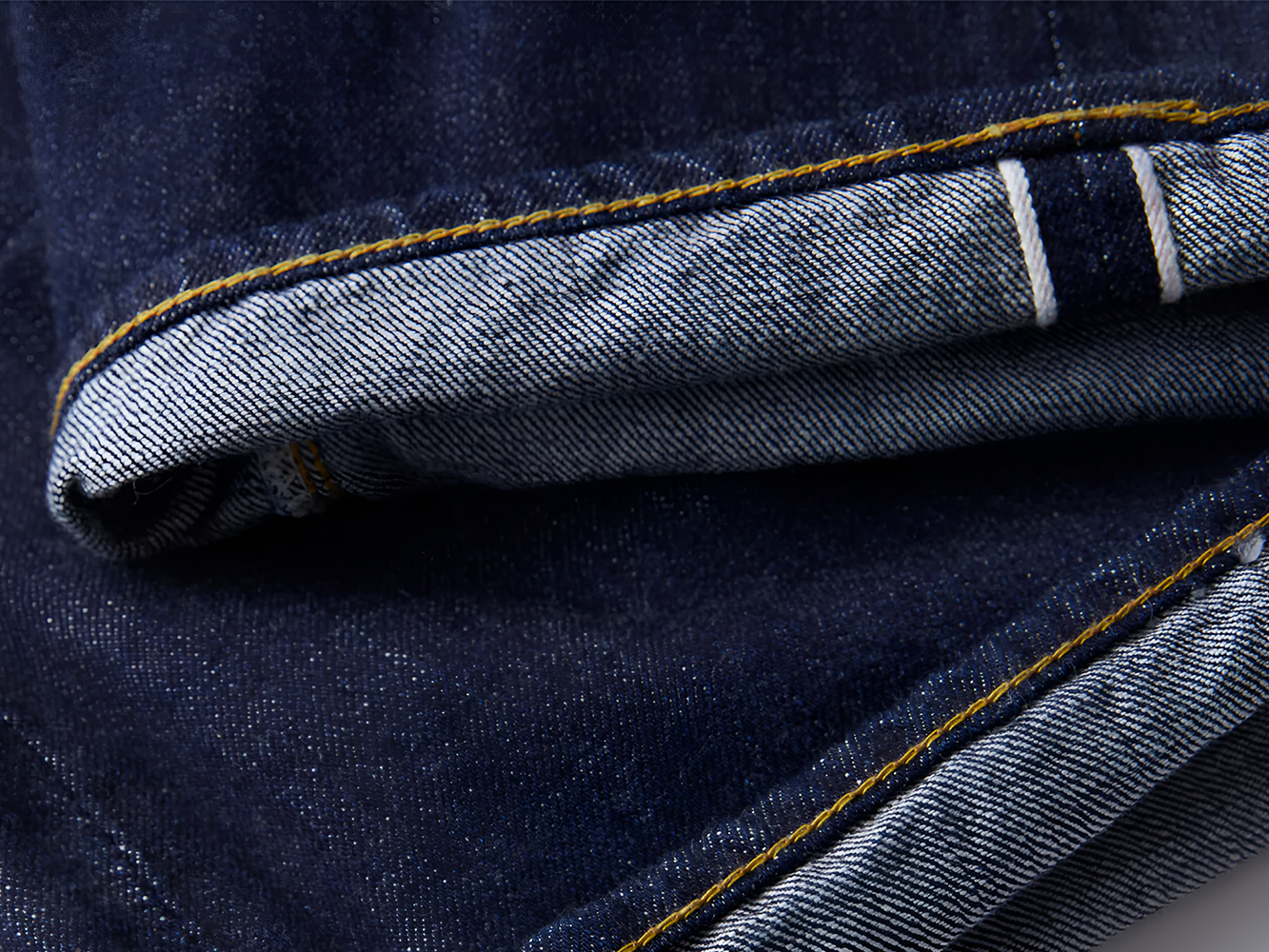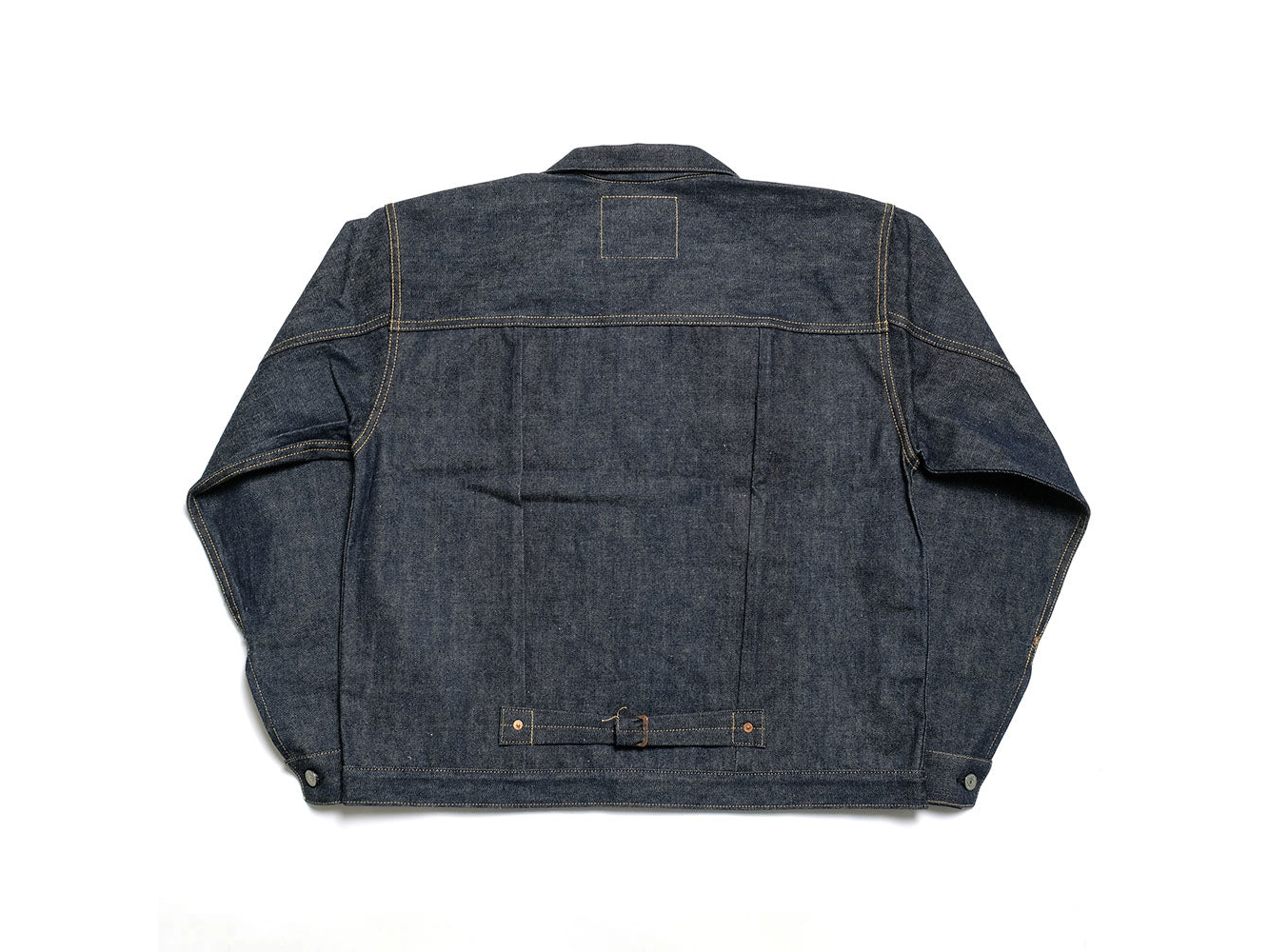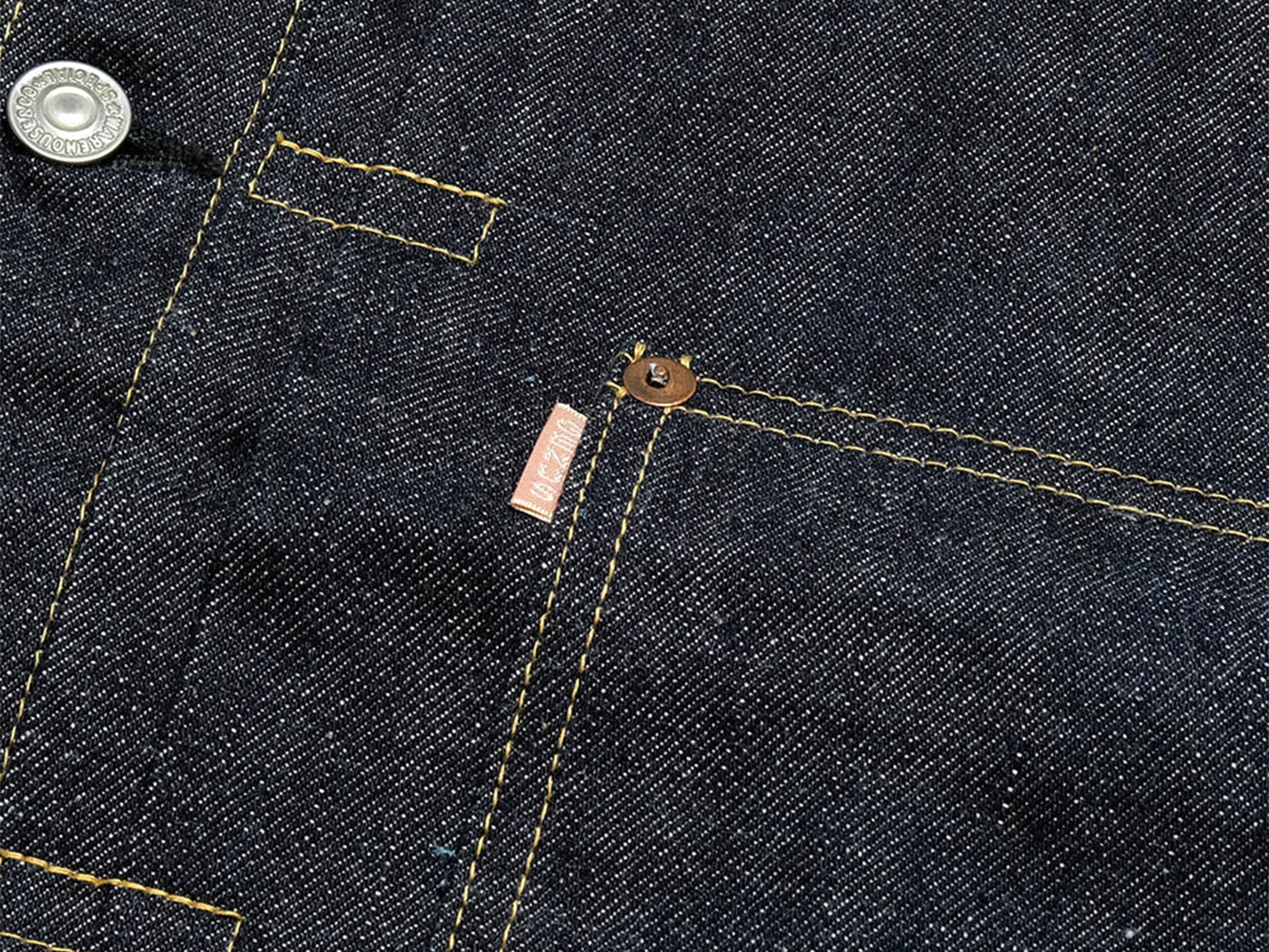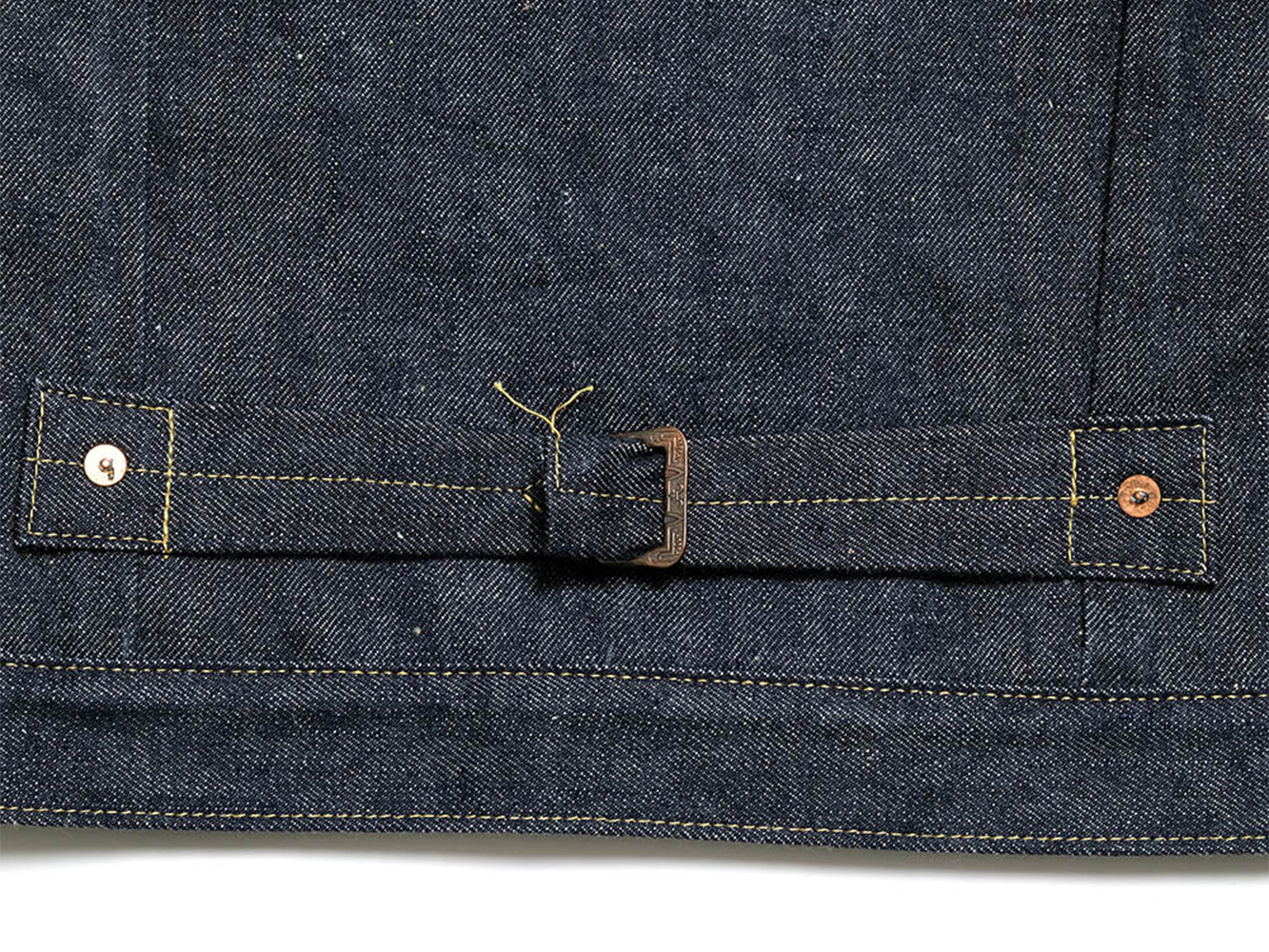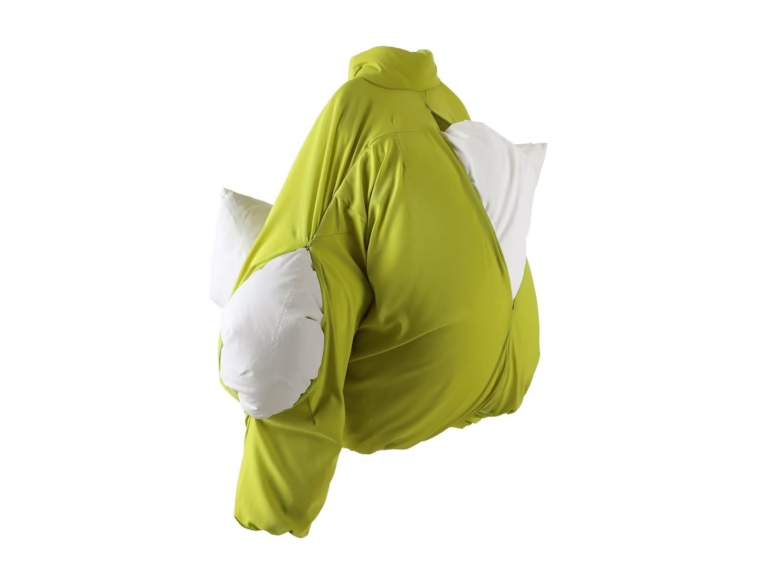In the 1980s and 1990s, five brands from the Kansai region quietly reshaped the world of denim. Known as the Osaka Five, a term coined more by fans than by the brands themselves, these labels emerged during Japan’s vintage jeans boom. United by a commitment to selvedge denim, archival accuracy, and domestic production, they helped revive Japan’s textile industry and established Okayama as a global denim capital. Each brought its own approach, but all showed that “made in Japan” could rival the best in the world.
1. Studio D’Artisan
Studio D’Artisan began in 1979 under the direction of Shigeharu Tagaki. With a background in Parisian fashion, Tagaki leaned into heritage production methods and reinterpretation rather than strict replication. Shuttle-loomed fabric, natural indigo, and a sense of humor, embodied by its pig logo, gave the brand a personality that stood out.
Iconic Products:
DO-1, a 15oz jean with cinch-back and hidden rivets; SD-DO1, a commemorative update with refined vintage detailing; SD-101, a classic straight fit with deep blue fades; SD-107, a slim-tapered version for a more modern silhouette.
2. Denime
Launched in 1988, Denime focused on faithfully capturing the feel of 1960s Levi’s jeans. Founder Yoshiyuki Hayashi applied years of hands-on research into denim construction, producing clean, detail-oriented reproductions. Known for its quick-fading fabric and subtle character, Denime became a standard for those drawn to no-frills accuracy.
Iconic Products:
Lot 224 (66 Model), a straight-tapered jean based on the 1966 Levi’s 501; Lot 220A, a fuller, higher-rise fit modeled after 1950s-era Levi’s.
3. Evisu
By the early 1990s, Evisu entered the market with hand-painted seagull arcs and vintage-influenced silhouettes. Created in 1991 by Hidehiko Yamane, the brand combined selvedge denim construction with playful visual identity. It brought Japanese denim into global pop culture and streetwear.
Iconic Products:
Lot 2000 No.1, a loose fit with painted gull wings; No.2 Series, a more accessible version with machine-applied details; Daicock, featuring a large brushstroke graphic across both back panels.
4. Fullcount
In 1993, Mikiharu Tsujita introduced Fullcount with a focus on comfort and authenticity. By using long-staple Zimbabwe cotton, he created raw jeans that were soft and wearable while retaining classic fits and vintage details. The approach helped make raw denim more accessible for everyday use.
Iconic Products:
0105, a wide-leg silhouette based on the 1953 501XX; 1108, a slim straight fit made for daily wear; 1101, a regular straight cut that balances comfort and tradition.
5. Warehouse & Co
Warehouse was founded in 1995 by the Shiotani brothers and quickly became known for its detailed approach to reproduction. Each garment is the result of deep archival study, from thread weight to fabric texture. The brand remains a favorite among collectors and vintage denim enthusiasts.
Iconic Products:
Lot 1001XX, a 1950s-style jean built with proprietary Banner Denim; Lot S2000XX Jacket, a WWII-era Type I reproduction with period-specific details; Duck Digger series, limited runs using deadstock methods and archival inspiration.
